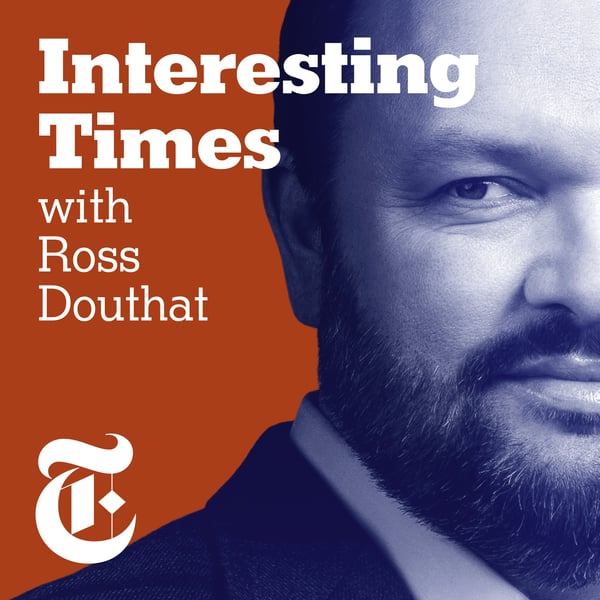Abolish the Senate. End the Electoral College. Pack the Court.
Interesting Times with Ross Douthat
New York Times Opinion
4.2 • 7.2K Ratings
🗓️ 14 August 2025
⏱️ 56 minutes
🧾️ Download transcript
Summary
Transcript
Click on a timestamp to play from that location
| 0:00.0 | From New York Times opinion, I'm Ross Douthat, and this is Interesting Times. |
| 0:07.0 | After the great rebuke of 2024, many Democrats seem to think that their party needs to become more moderate. |
| 0:32.2 | But there's another theory, potent on the American left, which holds that Donald Trump's |
| 0:37.1 | election shows not just that American democracy is in danger, but that it doesn't really work at all. |
| 0:44.0 | What the country needs isn't just a new policy agenda. |
| 0:47.7 | It might need the kind of constitutional revolution, from adding new states to packing the Supreme Court that some Democrats already |
| 0:56.1 | flirted with under Joe Biden. |
| 0:58.9 | That's the kind of argument that my guest today makes in his new book, The Right of the People, |
| 1:04.2 | Democracy and the Case for a New American Founding. |
| 1:08.5 | Ossita Wanevu, welcome to interesting times. Thanks for having me. |
| 1:15.7 | So we're going to talk about how radical ideas and radical critiques from the left might end up |
| 1:22.2 | being very influential in Democratic Party politics going forward. But before we get there, I want to go back to the last election, |
| 1:30.5 | in which the Democrats had basically presented themselves as defenders of our democracy |
| 1:36.6 | against the threat of authoritarianism, fascism, or at the very least, a dangerous kind of populism. |
| 1:45.8 | And what you saw in 2024 was the failure of that argument because in the end, Donald Trump didn't just |
| 1:51.3 | win the electoral college. He won the popular vote. Our democracy, as it exists today, |
| 1:56.4 | voted for him. So I thought to start, could you talk a little bit about that democratic message |
| 2:01.7 | and why, from your perspective, it failed? Sure thing. So I think many voters went to the polls |
| 2:08.4 | in November, understanding the election as being a referendum on democracy in a precisely that way. |
| 2:13.7 | I think the people thought that they were being asked to judge, on one hand, a set of |
| 2:17.1 | abstract ideals that their civics teacher might have told them was important in high school or grade school, and the price of groceries, the cost of living. And I think a lot of Americans, you know, looked at that choice, and they said, well, hell, I'm going to go with my own economic mal-being, the hope, which I think was a misguided hope, that Donald Trump's going to improve conditions within the economy. And so the abstractions the Democrats ran on, the conception |
| 2:39.4 | democracy that they put forward wasn't compelling for a lot of different reasons. Early last year, |
... |
Please login to see the full transcript.
Disclaimer: The podcast and artwork embedded on this page are from New York Times Opinion, and are the property of its owner and not affiliated with or endorsed by Tapesearch.
Generated transcripts are the property of New York Times Opinion and are distributed freely under the Fair Use doctrine. Transcripts generated by Tapesearch are not guaranteed to be accurate.
Copyright © Tapesearch 2025.

